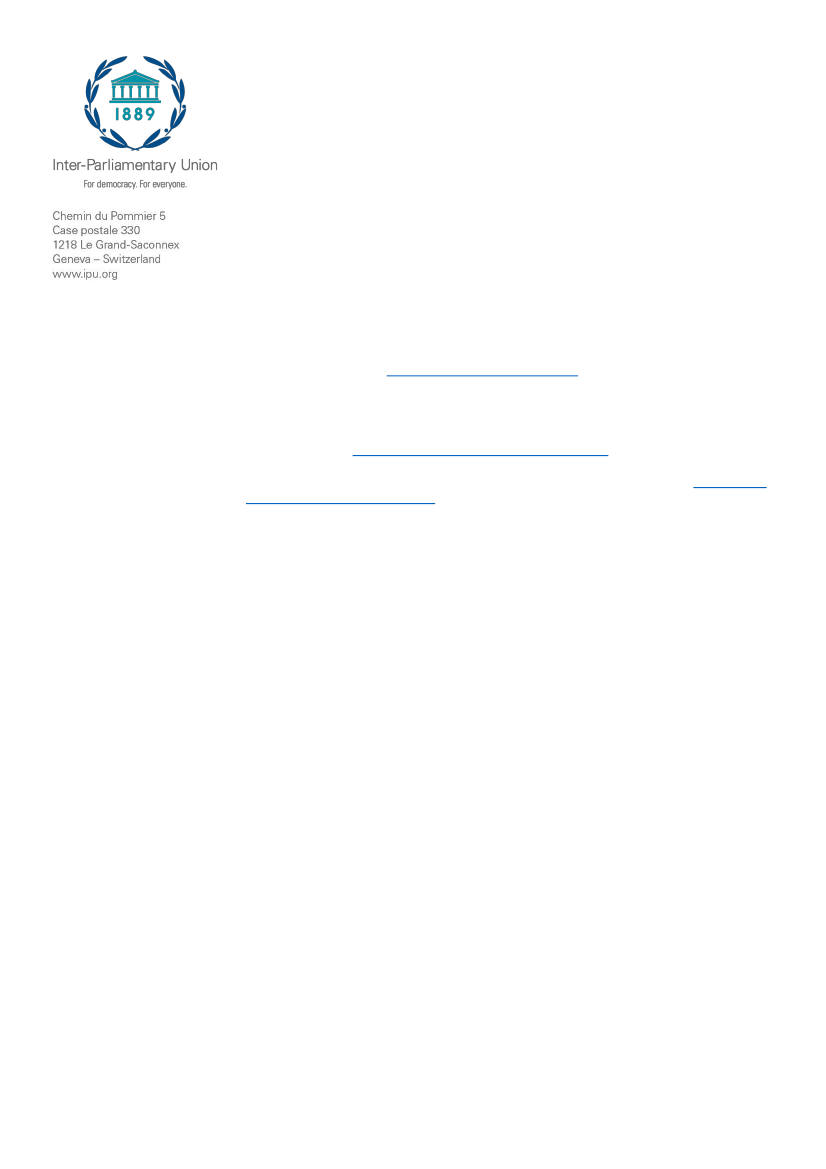
News Release
New IPU report: COVID-19 has accelerated
modernization of parliaments
Geneva, Tuesday 27 July 2021. For immediate release
The new edition of the
IPU World e-Parliament Report
reveals how the COVID-19
pandemic has acted as a catalyst for parliaments, with many embracing new
technology to modernize and, as a result, engaging better with the people they
represent.
Published by the
IPU’s Centre for Innovation in Parliament,
the
report’s
findings are
based on a survey of 116 parliamentary chambers in 91 countries and focus groups
involving 49 parliaments between 2018 and 2020. The report follows the
IPU’s World
e-Parliament Conference 2021
in June which brought together over 650
parliamentarians and parliamentary staff from around the world to share good
practice and lessons learnt from the pandemic.
IPU Secretary General Martin Chungong said,
“Democratic ideals and practices
have been challenged by the pandemic but again demonstrated their extraordinary
resilience. Parliaments have had to adapt to a rapidly changing situation, simply to
keep operating. In documenting the experiences shared by parliaments over the past
years,
this year’s
IPU World e-Parliament Report includes not only dozens of case
studies about how parliaments have adapted, but also how they have become better
equipped for the future to serve the people.”
The Covid-19 catalyst
More than one year on from the initial wave of the pandemic, the new IPU report
shows evidence of a cultural shift as parliaments have been forced to innovate and
find new ways of working to continue to function.
For example, the parliaments of Brazil, Spain and Chile were early adopters of digital
tools for remote sittings at the beginning of the pandemic.
By the end of 2020, 65 per cent of the parliaments surveyed had held virtual or
hybrid committee meetings and 33 per cent a virtual or hybrid plenary meeting.
Regulations and parliamentary procedure have had to be amended to support
remote working, allowing more flexible work arrangements as well as remote voting.
The use of video conferencing technologies rose dramatically by 72 per cent
between 2018 and 2020.
Better connected to citizens
Remote working is also proving beneficial for public engagement as
parliamentarians spend more time in their constituencies.